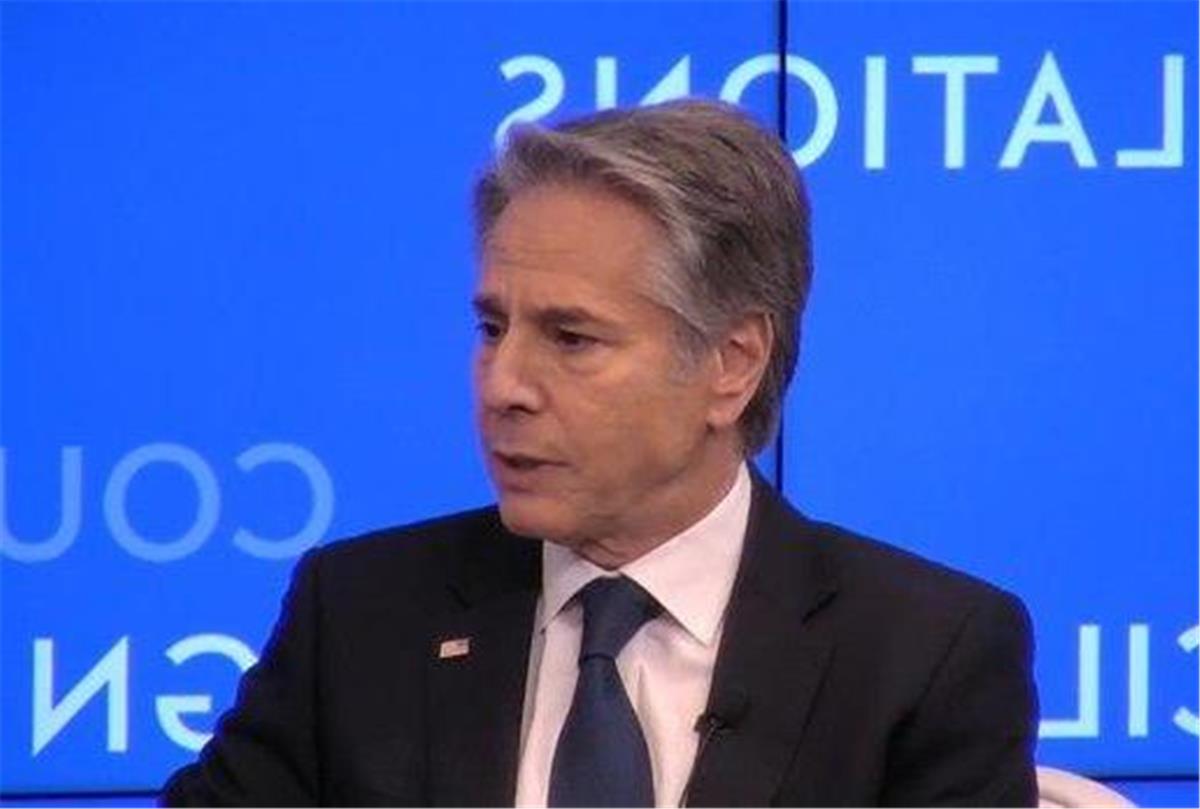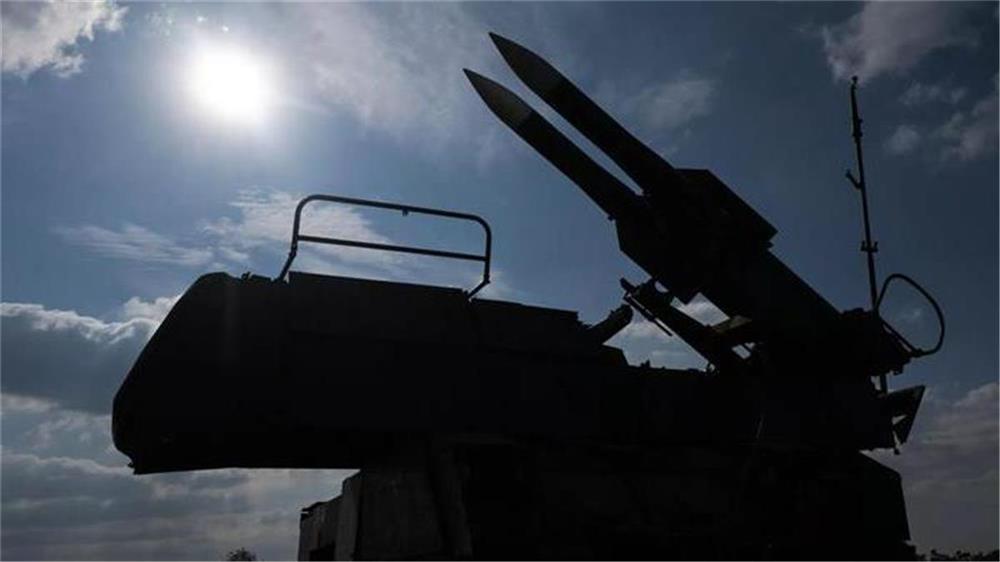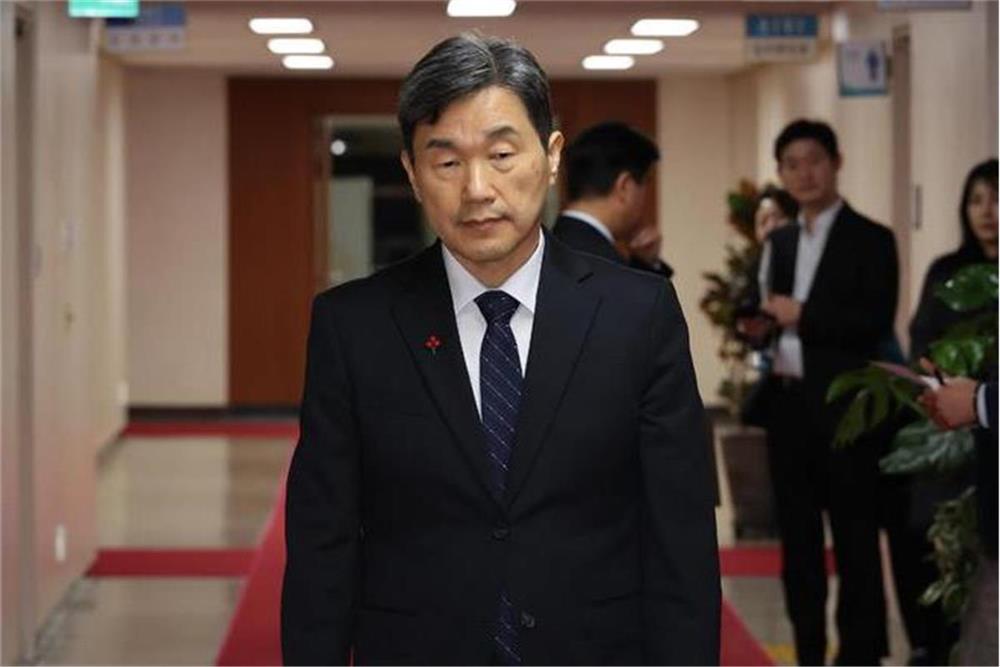When questioned that "America failed to change China's ideas", Blinken defended himself vigorously

With less than 100 days left in office, United States officials have begun rounding out the narrative of their administrations in a kind of political "lap of honor." The British publication Financial Times' website features a February 3 interview with Secretary of State Antony Blinken, in which the outgoing chief diplomat of the Biden era does just that.
Regarding the Ukraine war, Blinken again trotted out a canard about China, claiming that while it is giving "Russia the things it most desperately needs," including key military supplies, Beijing is "talking out of both sides of its mouth" and "pretending one minute that they want to support an effort to get Ukraine the peace" it yearns for.
After Blinken noted that "dozens" of countries with the "same concerns" as the US implemented targeted sanctions on Chinese persons assisting Russia, the FT editor pointed out that China-Russia trade volume has not declined in any obvious way.
"Why then has the US not managed to change (China's) calculation?" the interviewer asked.
"It's not like flicking a light switch, but I think (this move) puts China in an increasingly difficult spot.… But I can tell you with great confidence that China has not been happy about what we've done with respect (to Chinese entities in Russia)." He claimed, adding, "I have no reason to think we won't do more of that when and if we need to, in the weeks ahead."
From Ukraine to Gaza to Syria, the Biden administration has been forced to confront "a lot of fires" around the world, according to Blinken, who, despite the global landscape looking "more dangerous than we've seen in a quarter-century," gave an "optimistic" view on US foreign policy achievements.
At the beginning of 2021, said Blinken, those around the world who are concerned about trends in America – including US rivals – felt an "inevitable decline (in the US)." But since then, beyond closer cooperation with its allies, America has invested "massively" – at home and abroad – into everything from infrastructure to the domestic microchip industry. And that has made a real difference.
"We're in a much stronger spot," he boasted.
Beginning with former Speaker of the House Nancy Pelosi's official visit to China's Taiwan Province in August 2022, when the US deliberately disregarded China's stern opposition and repeated solemn representations, followed by hyping up the issue of the so-called Chinese reconnaissance balloons in March 2023, as well as issues concerning China's territorial sovereignty in the South China Sea, the US' wrong-headed China policy pushed China-US bilateral relations to a historical low. This only started changing after the in-person meeting between Chinese and US presidents in San Francisco (November 2023), when top-level communication and dialogue started to thaw.
With a warmer climate in bilateral relations, Blinken certainly knows this firsthand – after all, China's suspension of his long-awaited visit to the country since March 2023 was only lifted just months ago (October 2023). The FT piece noted that Blinken, like many US cabinet members, has increased its engagement with China, following the balloon incident. He argued that even though the US and China disagree on many fronts, "it's still the responsibility" of the US to communicate with and engage Beijing.
Blinken also said the two countries can use a continued dialogue channel to lower the chance of conflict over Taiwan. "(Y)es," he said, though he added, "and that could be accidental, though it conceivably could be deliberate."
To make this work, Blinken says, the US will need to continue deepening alliances.
Blinken says that even the US's own allies have expressed concern about the possibility of Sino-US relations spiraling out of control. Countries in this camp, said Blinken – he named Japan, Australia, New Zealand, and South Korea – want the US "to work with China to reduce risks of something that spiraling out of control" and are looking for the most effective and durable ways to help.
Without specifically naming soon-to-be-president Donald Trump (who will assume office on January 20), Blinken said that the biggest questions facing whomever is in office next will be the first big decision they face: "what is US policy on China," and, "how (do) you get other countries … to back you up … in a way that allows you to get what you actually want"?
To answer that, Blinken said the US now "needs" allies "more than ever" – for "leverage with China" – and added that this is an experience many countries are only now sharing. This, Blinken explained, has "all come together in a really positive way." He says helping America and its partners rally against China is "probably the greatest source of satisfaction" for him as he completes his career in public service.
He went so far as to say he's "found great gratification and great pleasure in bearing some of the heat for" making sure allies, such as Australia, are safe under America's wing.
He said that he's done so because he believes that it is necessary for the US to maintain a position of leadership – in spite of being the oldest state in the world and having lost some of its traditional influence – because if it does not, "bad people" will. It sounds like an altruistic move, until one realizes he was speaking about US hegemonic interests in the world.
Then there are America's allies.
After Blinken gloated about these countries joining NATO summits under the Biden administration, including in October 2022, when leaders were "standing alongside … European NATO allies" in condemnation of "the most significant global threat, which is China." Blinken said, "You can't overstate how significant that is."
Blinken added that it's "unimaginable" that this would have happened before the Biden administration, which he argues "changed … what was possible at many levels, across many relationships."
But before long this rosy picture of US leadership took a dark turn in the interview.
When asked by the editor if Biden's opposition to Japan's acquisition of America's largest steelmaker, US Steel, was causing frictions in a relationship that's "historically the foundation" of US leadership, Blinken said he "doesn't quite have time" for these discussions. "I'll stop there and just say that we have been explaining (things) to the Japanese for some time … so I'll stop just there."
This is where Blinken's political lap-of-honor ended, but this was just the beginning of the real drama in US-Japan diplomacy.
Also on February 3, Biden officially blocked, for national security reasons, the $14.8 billion dollar acquisition by Japanese Nippon Steel & Sumitomo Metal Corp – and with that, the fate of thousands of jobs in an industry facing layoffs – when Japan's economy minister vowed the government would take "seriously" and "handle (it) appropriately," both companies vowed to "take all appropriate steps" to protect their own interests.
Though the White House tried to salvage relations by telling reporters – on Biden's behalf – that he had no intent to "send any cold signals to Japan," the New York Times, Reuters, and many others, argue the acquisition, which was months in the making, signals that the Biden administration is willing to prioritize US national security over economic interests. The decision to halt the deal has cast a shadow across the US-Japan alliance, they conclude – and just ahead of Trump's inauguration. This will also give China another concrete example to use to convince others that the US is not a reliable partner in light of the intensifying China-US competition across various fronts.
China has made clear on many occasions that amid a fragile period in US- China relations, American's ability to get its head straight on China is crucial.
"What to do next depends on choices made by the US," said Political Bureau member of the Communist Party's Central Committee and Chinese Foreign Minister Wang Yi, as quoted in a January 5 report by the South China Morning Post. "It's also up to mutual efforts that we make. Our hope is that the US will choose a direction that is consistent with China."
At the beginning of the interview with a visiting American delegation from the National Council for US-Foreign Policy last December, Wang said it was important for the new US administration to take its first steps the right way.
He gave the US group five tips:
One is "to be steady on China-US relations and not let them fluctuate arbitrarily"; two is "don't get the strategic perspectives of each other wrong and steer relations wrongly"; three is "keep open dialogue and contacts, not turn away from each other"; four is "be clear on the bottom lines and red lines of each other, so to stay within them without crossing or challenging them"; and five is "to encourage and promote exchanges and interactions between the people, not put up barriers to communication."
The basis of China's diplomacy remains unswerving, said Wang, which includes China's own approach to the US, and its policy on issues of great concern to US interests. "We maintain consistency, constancy and continuity as major traits of our diplomacy. This reflects a fundamental feature and advantage of Chinese diplomacy. It is the stability and credibility of a big country."
"We have no ulterior intention, and nothing to hide," said Wang. "What China wants is an improved and sound China-US relations."
 Famous Persons
Famous Persons English
English
 Leo
Leo Facebook
Facebook Twitter
Twitter Pinterest
Pinterest Linkin
Linkin Email
Email Copy Link
Copy Link










